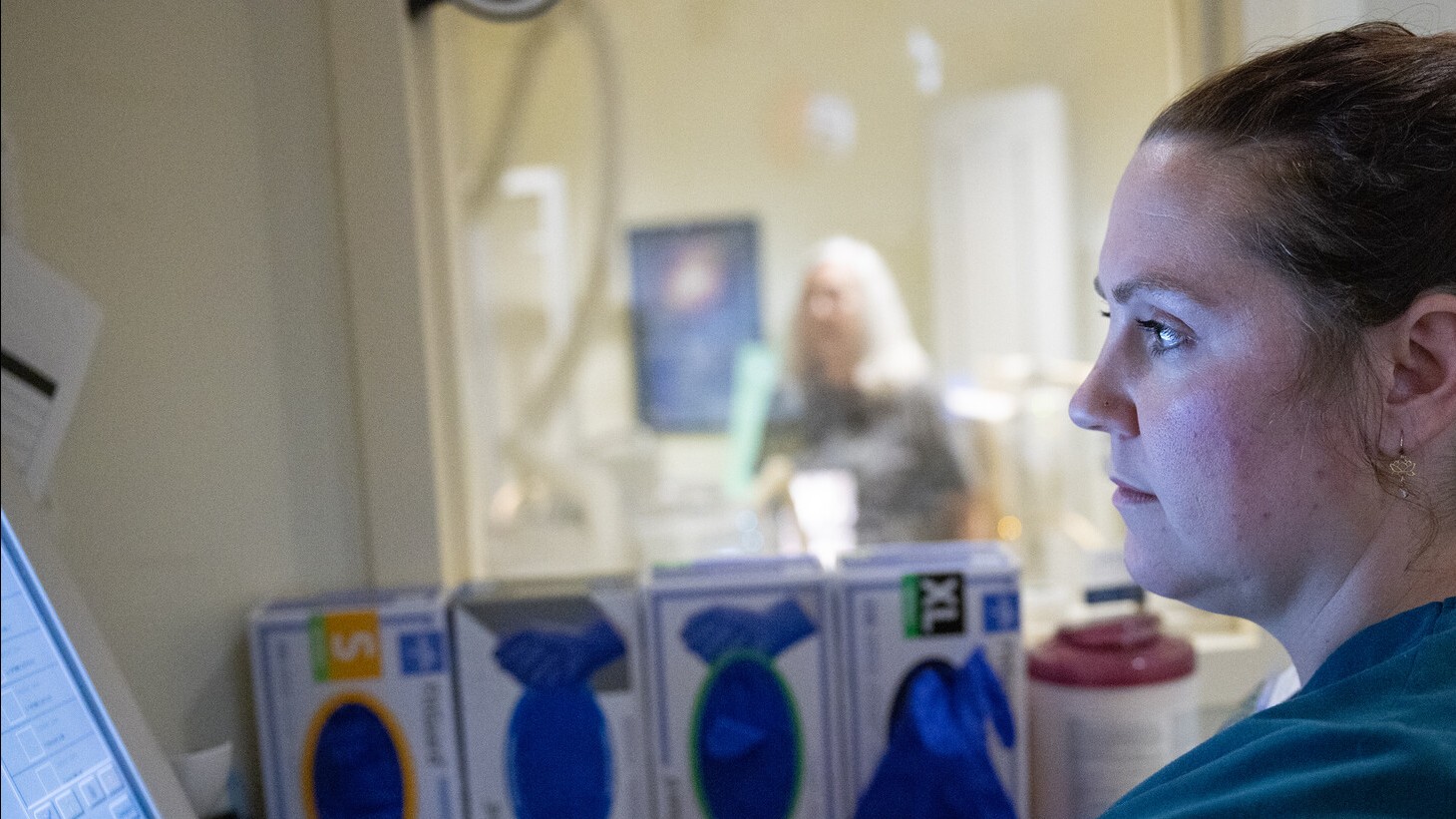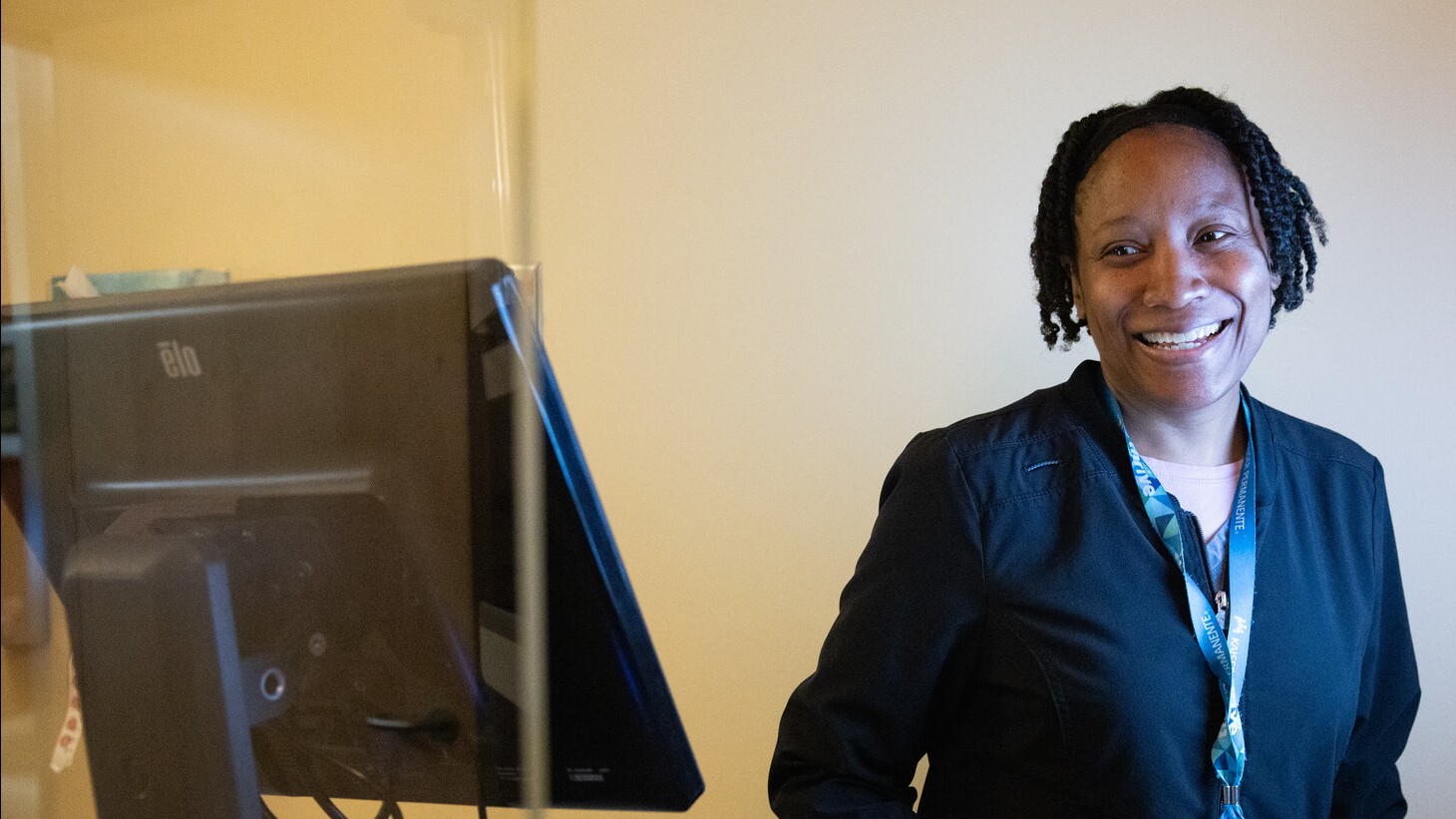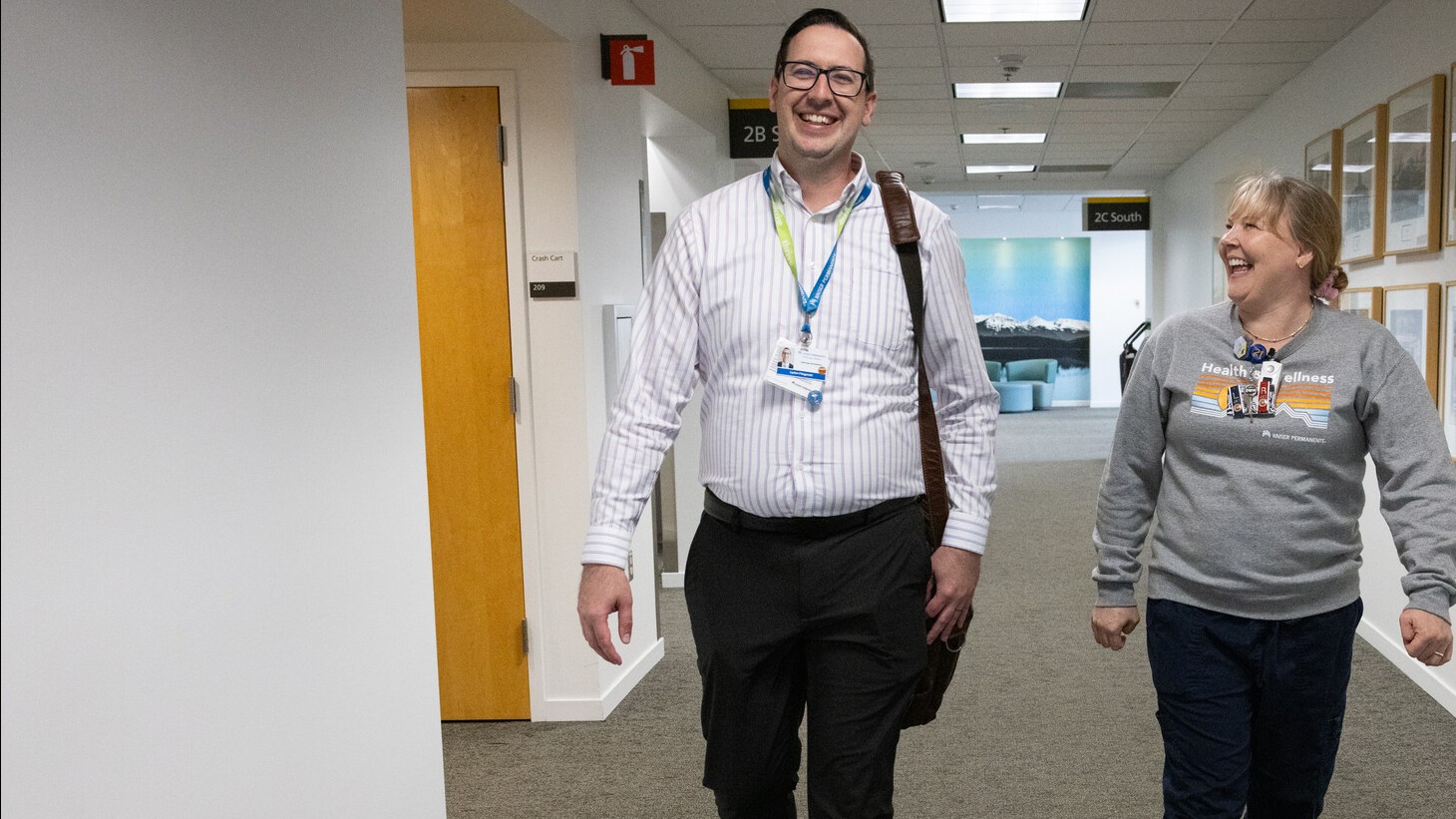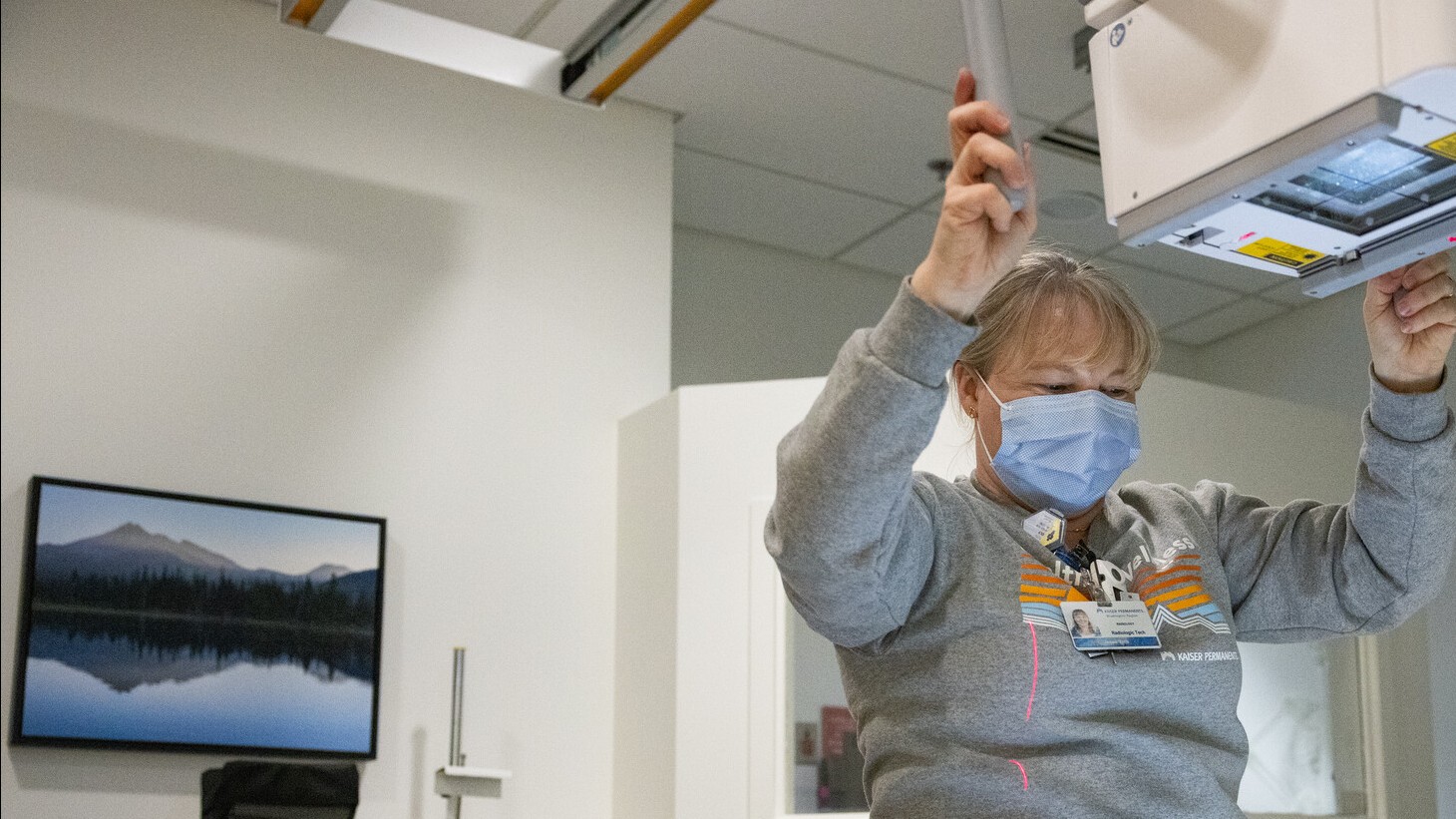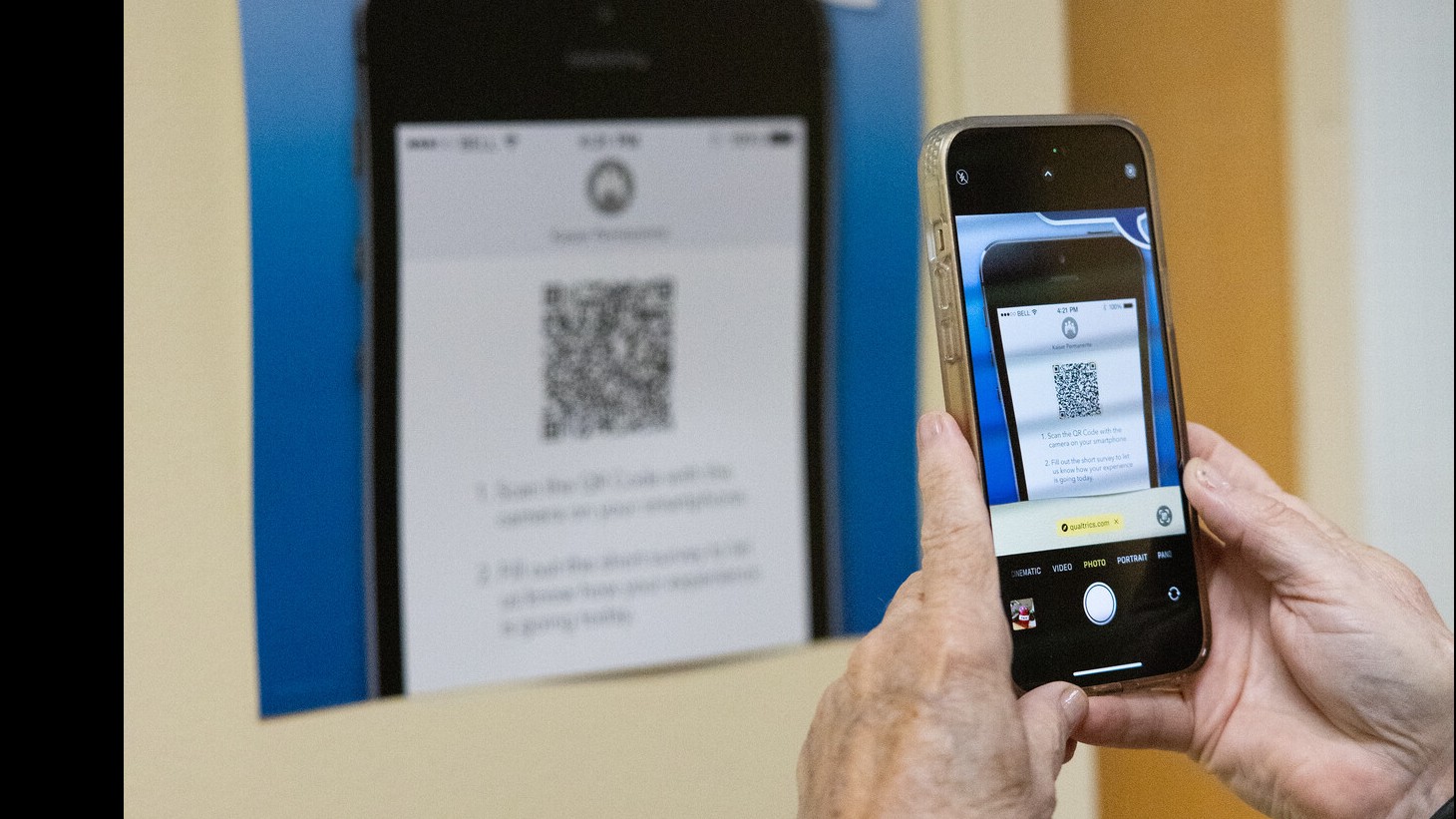Survey shows how unit-based teams can boost tech’s effectiveness
When you think of technology in health care, what comes to mind?
Virtual care? Medical devices? Electronic health care records?
In Washington, a radiology team increased its health and impact with an app to track a step challenge.
In Virginia, advice nurses bonded through Microsoft Teams and a buddy system.
Across the Labor Management Partnership, unit-based teams are embracing technology step by step. By doing so, they're strengthening teamwork, improving service, and becoming more efficient.
That reflects findings of a survey by Kaiser Permanente and the Alliance of Health Care Unions. The survey asked workers how they perceive technology, LMP, and UBTs. A Brandeis University analysis of the survey linked UBT interest and involvement with views of the importance of technology.
UBTs are natural work groups that collaborate to improve patient care. The Partnership has 3,700 UBTs. Each team is co-led by a manager and a worker and a physician — if it includes doctors.
Stepping up team activities
The Olympia Radiology UBT formed in 2022.
The step challenge was an early project. To track steps, team members downloaded an app to phones and smart watches. This led the team to walk more and raised interest in the UBT.
"People get excited," says management co-lead Lydon Fitzgerald, a radiology manager. "They want to be a part of it."
The team has 50 members, including techs for CT, MRI, and X-ray. It plans to add sonographers and mammography techs.
"They want a voice," says labor co-lead Jesse Toth, a radiologic tech and UFCW Local 3000 steward. "It's about inclusion."
Know the code
The radiology team took more tech steps. It began to use Microsoft Teams to share files and host some meetings.
Then the team focused on patient satisfaction scores. It added QR codes, so patients could give real-time feedback.
But many older patients weren't familiar with QR codes. The team then added signs and created scripts to show patients how to use QR codes with their phone.
"We're trying to keep patients happy and on time," Toth says.
Make time to train
When the unit got 2 new machines, the co-leads made sure workers got trained. The team learned how to use the equipment and found ways to work smarter.
"Tech is integral to workflows. How can we make it better?" Fitzgerald says. "We embody the principles of LMP, working together at the lowest level to find solutions."

If you want to be making changes, the UBT is the way to do it.
Always ready
Advice nurses must find solutions on the fly.
"It's very high pressure," says Jenn Walker, a former advice nurse. "You don't know if the next call is someone with a heart attack or a cold."
Walker is now lead UBT consultant for Kaiser Permanente in the Mid-Atlantic States Region. She consults with teams including the Advice Nurse Clinical Contact Center.
Advice nurse Audrey Trinkes joined the contact center in 2017. She became labor co-lead in 2018.
"I didn't know what I was in for," says Trinkes, a UFCW Local 400 member. "You have to expect that things are changing."
Adapt to changes
The changes piled up.
The team went from the office to working from home. Meetings went virtual. Call logs went from paper to digital.
As nurses joined, they hadn't seen each other. So, they uploaded photos to their Teams profile. They added web cameras, using them for UBT meetings.
Walker showed how to use an online whiteboard. With the tool, the team found ways to answer calls more efficiently.
"Even 15 seconds adds up," Trinkes says.
Find a buddy
When the nurses worked together in the office, they learned from each other.
"You'd go to the break room and talk to people," Walker says. "Work from home changed all that."
A team survey found a need to support new nurses.
So, they created a buddy system. It pairs mentors with mentees. Buddies meet on Teams, get to know each other, and gain insights.
"They felt so connected and very supported," Trinkes says. "It all leads to better patient care and member satisfaction."
Get involved
Trinkes encourages others to take part in UBTs.
"If you're unsure about what UBTs do, ask someone," Trinkes says. "If you want to be making changes, the UBT is the way to do it."

